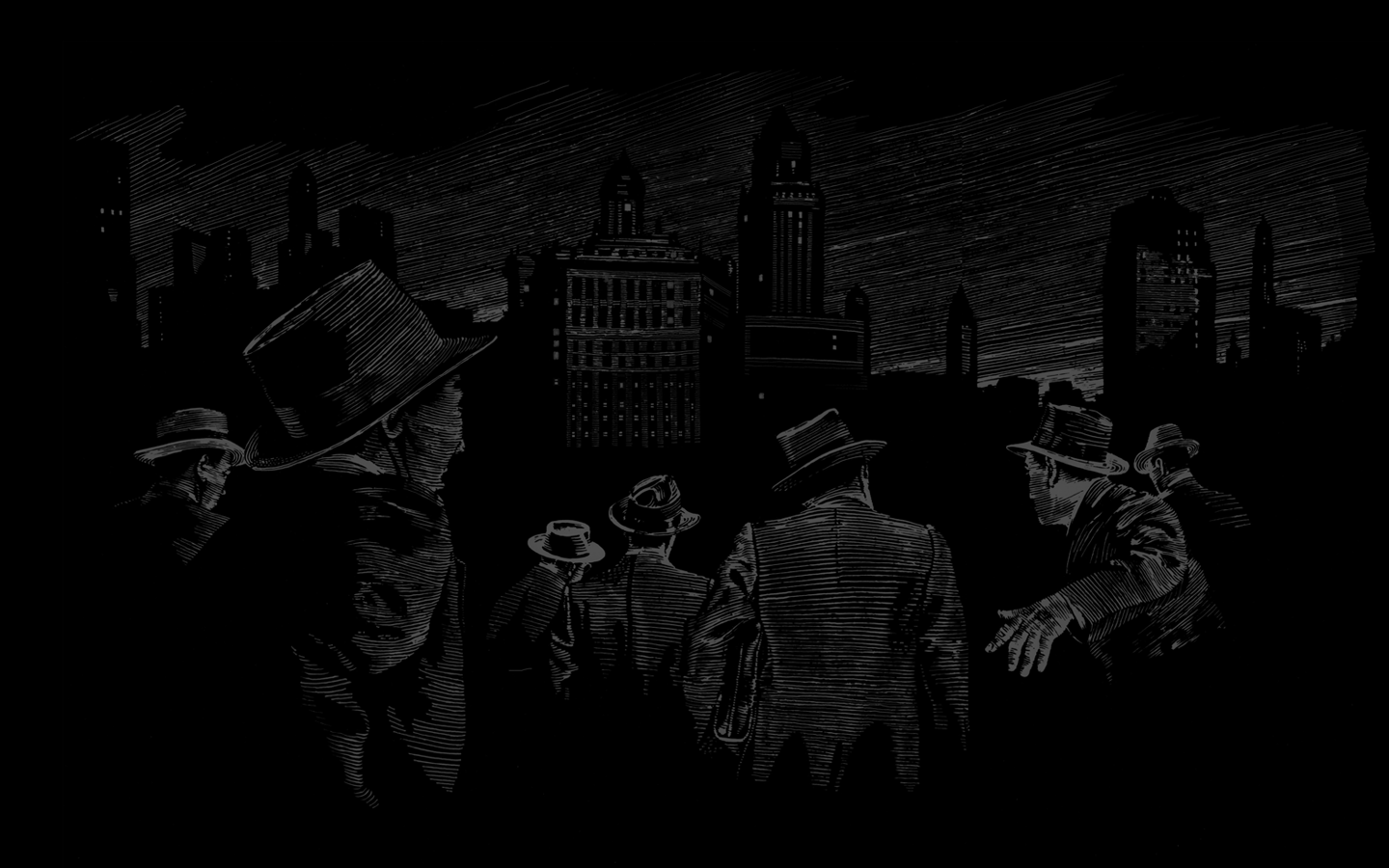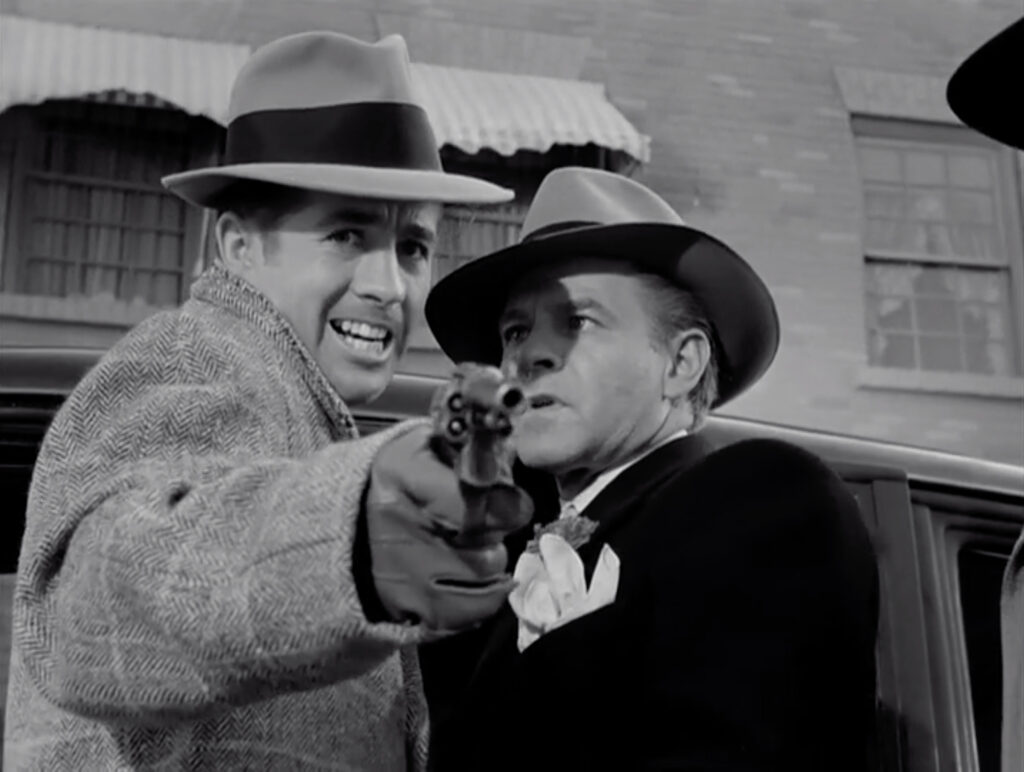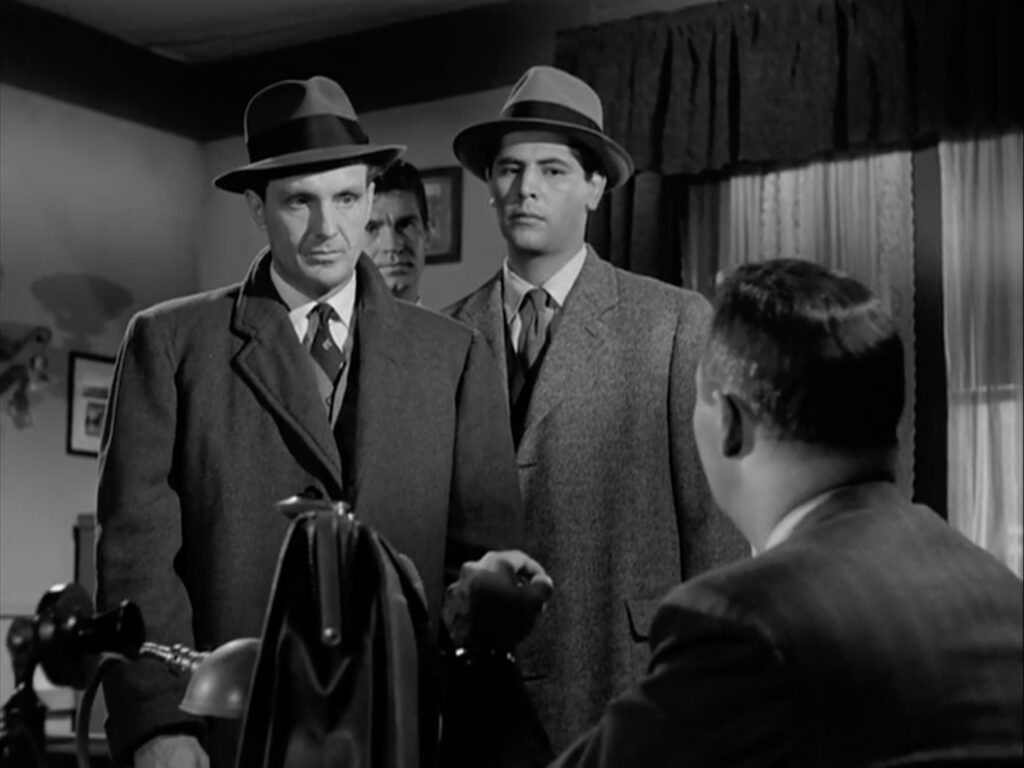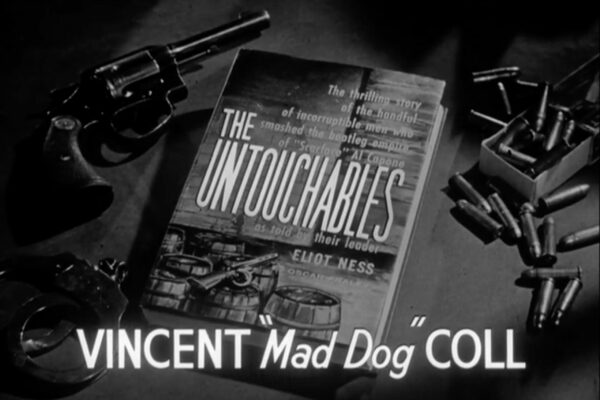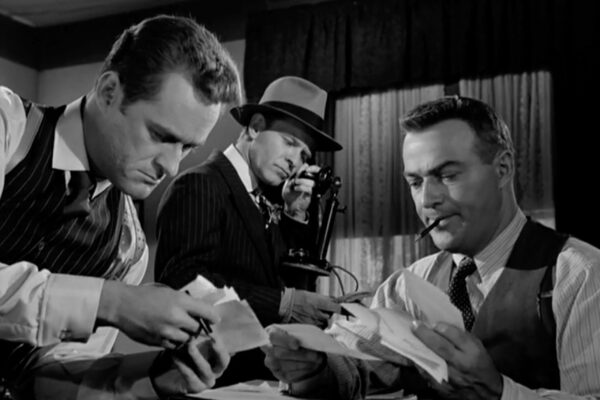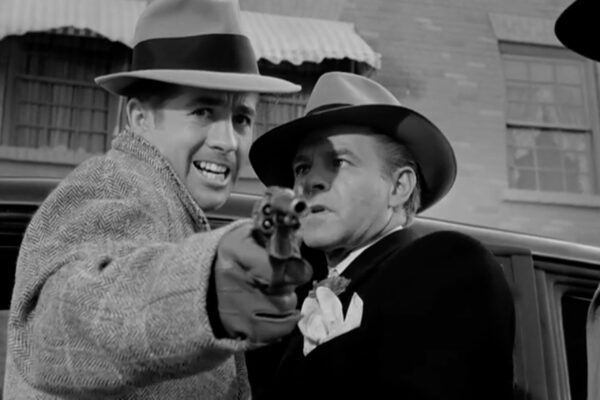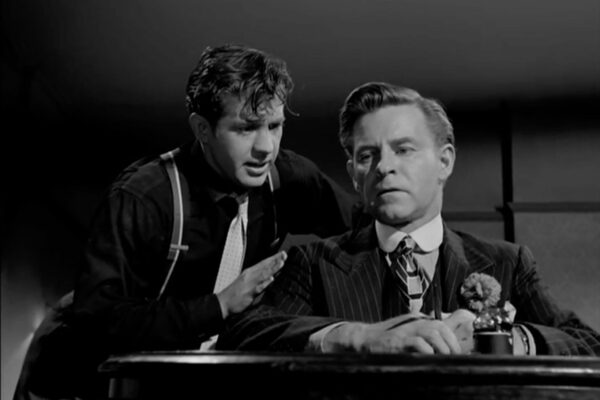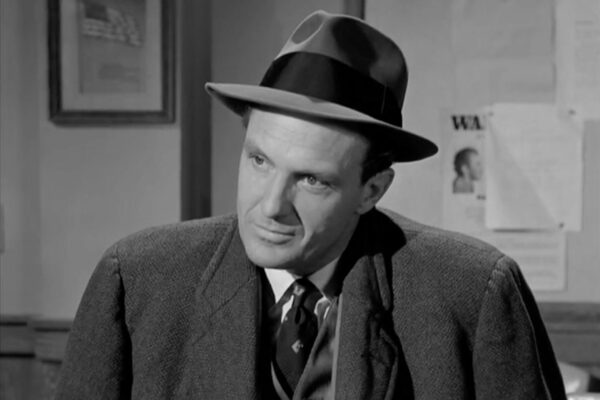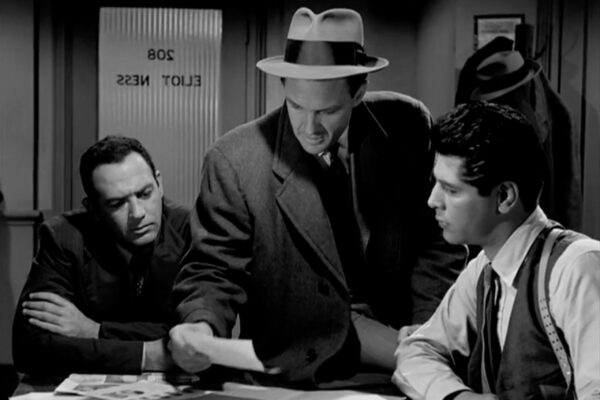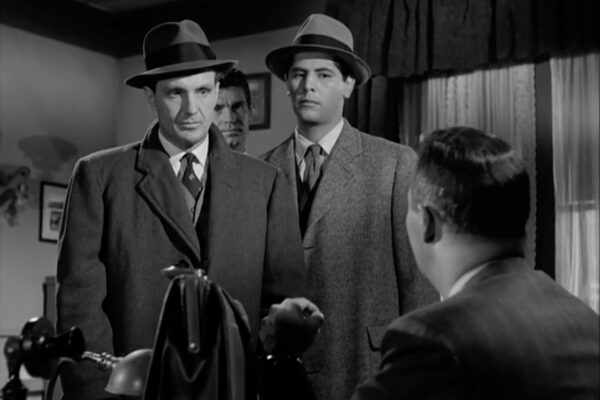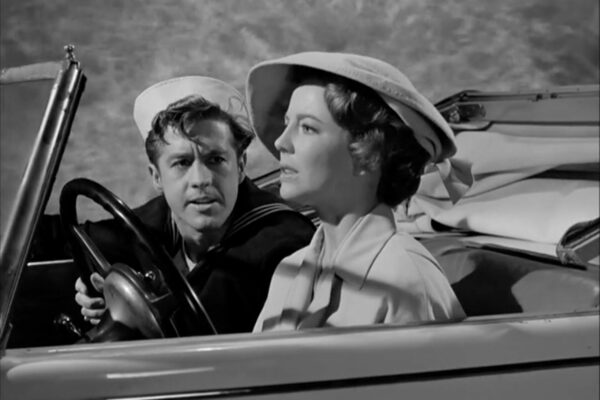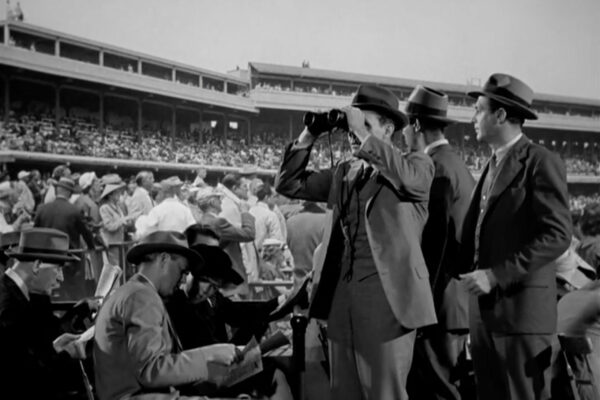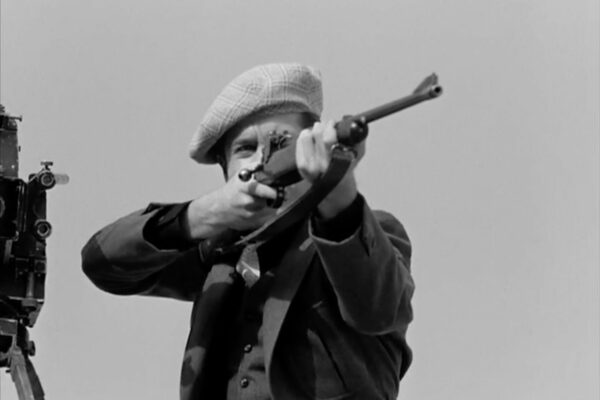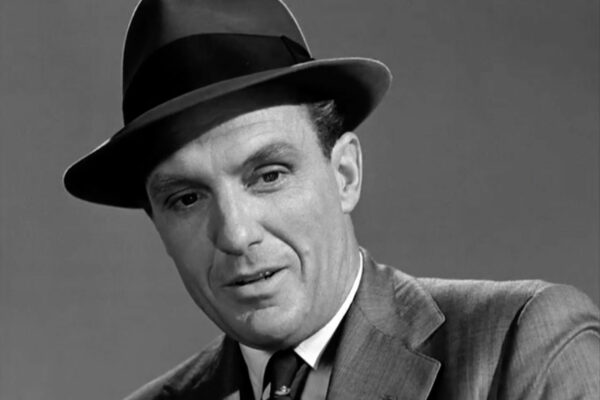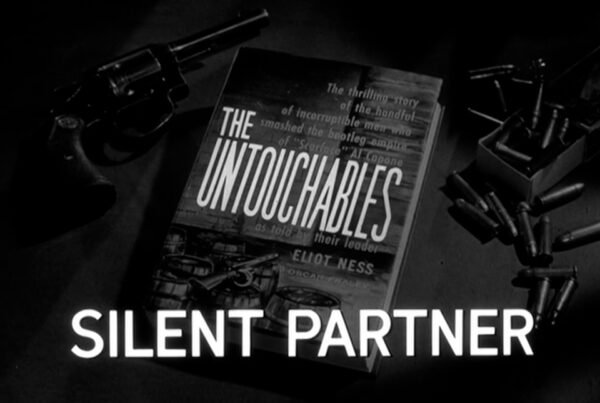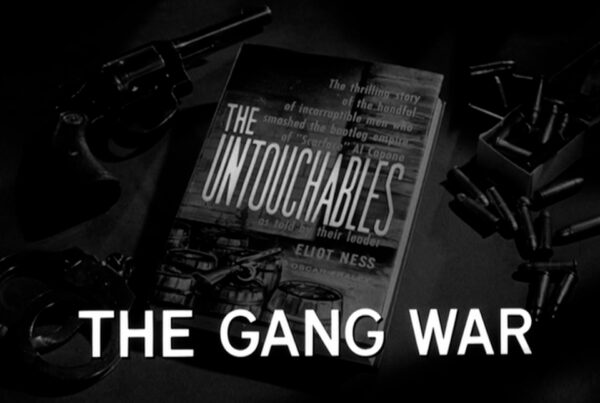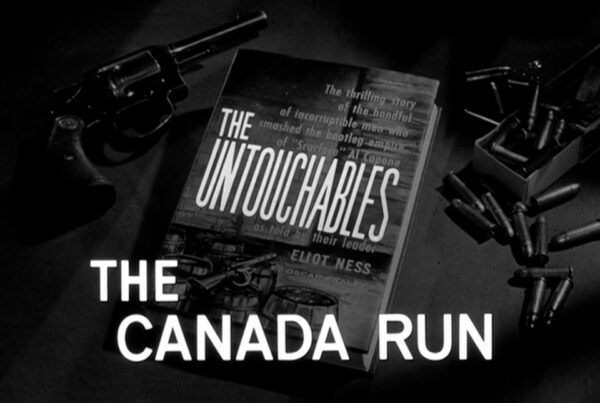VINCENT ‘MAD DOG’ COLL
Airdate Nov. 19, 1959
Teleplay by Palmer Thompson
Story by Charles Marion
Directed by Andrew McCollough
Produced by Paul Harrison
Director of Photography Charles Straumer
Co-starring Clu Gulager, Lawrence Dobkin
Featuring Suzanne Storrs, Richard Carlyle, Dick Miller, Ronni Anton, Richard Carlin
“In the month of February in the early thirties, three widely separate events occurred. At Churchill Downs, the entries for the Kentucky Derby were closed. In Tijuana, Mexico, a gambling syndicate accepted a huge bet in the winter book on one of those entries. The bet came from New York City, from a phone in a building on the west side of Manhattan. It was placed for a sallow-faced, tight-fisted man named Arthur Flegenheimer, Jr., better known as ‘The Dutchman.’ Dutch Schultz, beer baron of New York who, with his body guard Benny Bristow and his chief lieutenant Lefty Gallagher, sat in his office figuring the take from his criminal empire, Mile outside three men waited: Fats Finney, Needles Bledsoe and their leader, a man who had a vindictive hatred for Dutch Schultz! A man who was one of the most fantastic gangsters of that era: Vincent Mad Dog’ Coll.”
When Ness learns that Dutch Schultz (Lawrence Dobkin), is preparing to ransom his right hand man, Lefty Gallagher (Richard Carlyle), from kidnapper Vinnie Coll (Clu Gulager), he moves in to apprehend both, but the chance discovery that Coll murdered his victim before the payoff saves Schultz the ransom money and leaves Ness waiting for Coll’s next move.
Knowing that the Dutchman has bet a six-figure sum on a horse entered in the Kentucky Derby, Coll sets out to kidnap the horse, but later releases it unharmed in return for a ransom from its owner. His next plan is to shoot the horse mid-way through the race simply to cost Schultz his bet, but Ness, having assumed that Coll may indeed pull such a stunt, intervenes and captures him in the attempt.
“Vincent Coll, submitted to bail on an extortion charge, fled to New York, unaware that a price had been put on his head, not by the law, but by the lawless. Leaders of the underworld offered $50,000 for his death. Someone put in a claim for that money when on February 7, 1932, in a telephone booth on West 23rd St., New York, Vincent Mad Dog’ Coll died as he lived: In a hail of machine gun bullets.”
REVIEW
The first half of Vincent “Mad Dog” Coll is relatively interesting and certainly brutal, but it runs into trouble after police find Lefty Gallagher stuffed in a closet before Schultz has had a chance to pay the ransom. The horsenapping affair takes Coll and his two cronies out of their urban setting and eats up a good portion of the hour that might have been better spent in New York following the real Coll vs. Schultz chronicle more closely.
Clu Gulager’s portrayal of the infamous madman is quite good. Not quite Cagney’s Cody Jarrett in White Heat, but memorable nonetheless. Early on in the program he fully intends to gun down a young boy for having run into him with his scooter, but one of his men intervenes. Soon afterwards, he drills four consecutive, silenced rounds into Lefty Gallagher while the camera remains on the gangster’s cold unsympathetic face. He’d already shot Lefty twice.
He periodically scares the daylights out of his two partners, but they haven’t the collective presence of mind to take him out. Fats Finney (Dick Miller), eats junk food relentlessly and leaves a paper trail for agents to follow all the way to Kentucky.
Mad Dog should have been laid to rest in a hail of machine gun fire in a measure of instant justice, but rather, he is simply led quietly away in the end by Eliot Ness, leaving Winchell to describe the sort of ending viewers surely would liked to have seen. They were beginning to tune in in record numbers for just that sort of thing. It makes little sense to dream up violence when history has already recorded it.
Although Coll’s name is mentioned at least once more during the series, he never actually returns in the flesh to strike fear in the hearts of more civilized gangsters. Of interest is the reference made by Fats Finney concerning an item in Winchell’s column in a New York newspaper. The real Walter Winchell, of course.
QUOTES
NESS: (to Dutch Schultz) I’m not an expert on horses. Just dogs.
OBSERVATIONS
• This episode alludes to numerous historical figures and circumstances, namely that Mad Dog did indeed kidnap fellow gangsters for ransom, harbored a toxicity toward most people, and the scene where pulls a gun on a kid could likely be inspired by a mob hit that claimed the life of a nearby child. Culager’s characterization also hints at an unspecified mental illness and paranoia in later scenes.
• The horse racing subplot seems disconnected given that there was no historical relationship between Schultz, Coll and the Derby. If a horse was assassinated during a race, does Coll really think the result of the race would be valid?
• Ness mentions building an income tax case against Schultz – an attempt that would be expounded on four episodes later in the The Dutch Schultz Story.
• Youngfellow gets an extraordinary amount of screen time with Ness in this episode.
• While Ness visits Kentucky in pursuit of Coll, the real Eliot Ness worked to clean up moonshiners and bootleggers in Cincinnati and Kentucky after leaving Chicago behind.
HISTORICAL NOTES
The real Vincent “Mad Dog” Coll was a ruthless, scary little maniac who apparently earned his nickname in 1931 after a child was killed during a drive by shooting. A product of impoverished Ireland, Coll’s immigrant family led a nevertheless impoverished existence in the Bronx, laying the groundwork for Coll’s tendency toward violent outbursts and uncontrollable behavior.
Coll worked for the real Dutch Schultz for several years as his enforcer and moonlighted as a kidnapper of gangsters for extra dough. Coll and Schlutz parted ways over Coll’s degrading behavior and increasing paranoia, setting the scene for this particular episode. Coll would evade subsequent mob hits throughout the years until he was pinned to the inside of a telephone booth by a gentleman with machine gun in a drugstore called London Chemist’s in 1932. At that point, Coll had attracted the disdain of Lucky Luciano, who ordered the hit, thereby adding to the cast of characters who all likely preferred him dead.


